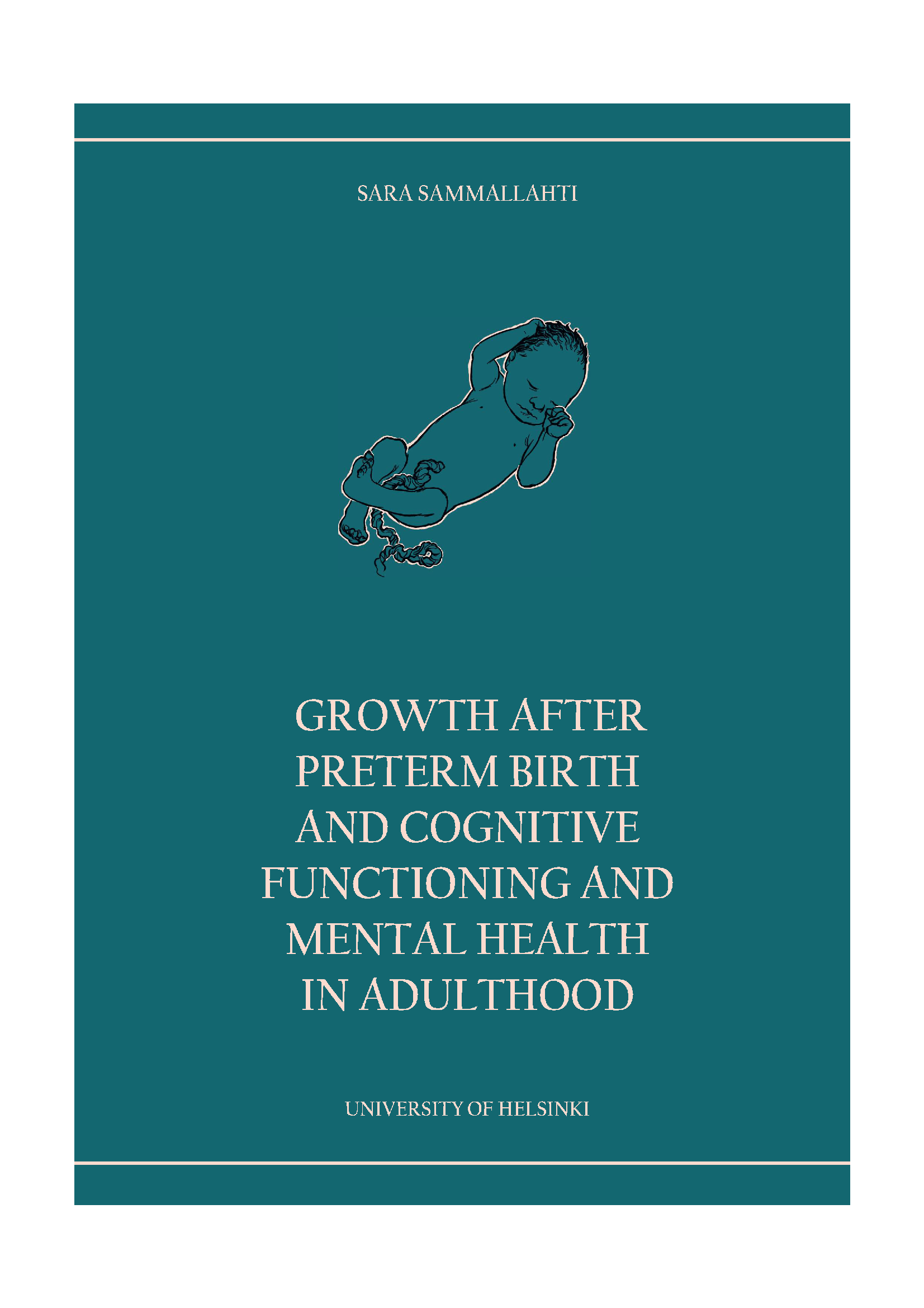Children who are born preterm – before 37 weeks of gestation – are more likely than term-born peers to have problems in cognitive functioning and may experience more mental health problems. Then again, most preterm infants grow up to be just as happy, healthy and smart as any of their peers. Among those preterm infants, who is at risk?

Sara Sammallahti showed in her thesis that early growth during the first months of life after preterm birth predicts adult cognitive functioning. Those preterm participants who grew well during early infancy performed better in neuropsychological tests in adulthood, received higher grades in school and were less likely to have been given special education. After taking into account many potential confounders, it seemed that this association was not explained merely by prenatal factors.
Higher intakes of energy, human milk, and macronutrients were also associated with better performance in adulthood. However, the associations between these nutritional intakes and long-term cognitive outcomes seemed largely driven by early morbidity: early illnesses can interfere with nutrition, and those infants who were severely ill as neonates were also more likely to experience neurodevelopmental problems later on.
Interestingly, mental health outcomes were not associated with early growth. This could suggest that the mechanisms that underlie the increased risk of mental health problems among preterm individuals are different from the mechanisms that explain why preterm individuals have, on average, more cognitive problems than term-born peers do.
Taken together, the results encourage further research into how we could best support the optimal growth and development of preterm neonates – what we do during those precious early weeks and months may have life-long consequences.

Sara Sammallahti, M.Psych., B.Med., will defend her doctoral dissertation entitled “Growth after preterm birth and cognitive functioning and mental health in adulthood” (“Keskosten kasvu ja aikuisiän kognitiiviset taidot ja mielenterveys”) at the Faculty of Medicine, University of Helsinki, on 7th April 2018 at 10:00. The public examination will take place at the Seth Wichmann Hall, Naistenklinikka, Haartmaninkatu 2. Professor Ken Ong from the University of Cambridge will serve as the opponent. Academy professor Katri Räikkönen, adjunct professor Eero Kajantie, and Professor Sture Andersson have supervised the thesis. The dissertation will also be available in electronic form through the E-thesis service 10 days before the defense. Contact details: sara.sammallahti@helsinki.fi .